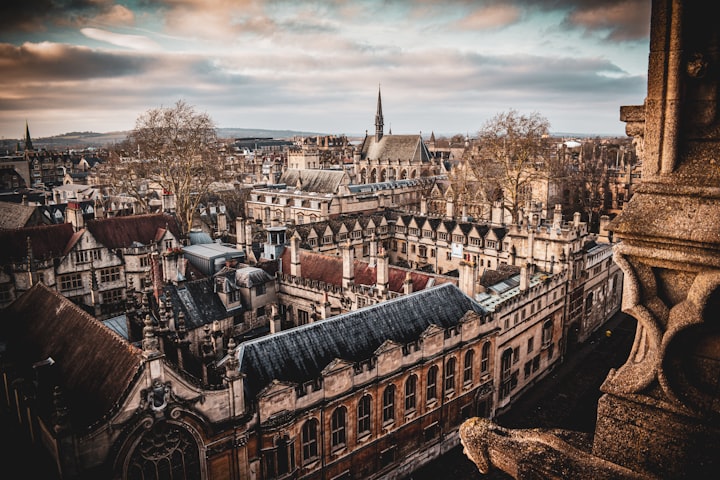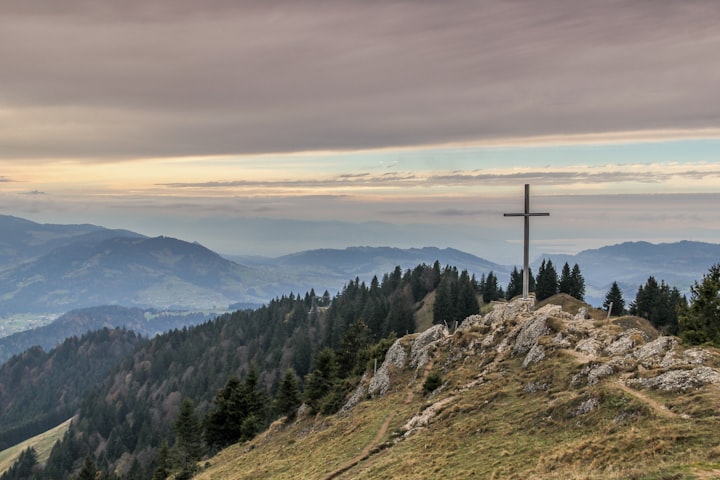The Grammar of Gratitude
To feel grateful, we must have gratitude to someone for something. That’s the grammar of gratitude. For the gift of life itself, we must be grateful to the giver of all life.

From Thanksgiving and Christmas to New Year’s Day, we express gratitude for all we have, but to whom should we be grateful, and for what? We cannot have Thanksgiving without God, and we cannot be grateful for much in this life without being grateful to him, either. Thanksgiving is “the act of saying or showing that you are grateful, especially to God,” and gratitude is “a strong feeling of appreciation to someone or something for what the person has done to help you.”
We express gratitude to someone for something. That’s the grammar of gratitude. For measly things — delightful trinkets exchanged at Christmas — we can indeed show feelings of appreciation to men and women, boys and girls. For important things, such as real sacrifices made for our good, we can be especially grateful. Indeed, we occasionally have more gratitude than we can hope to express.
The Gift of Life Itself
But behind these gratitudes large and small rests a deep and inexhaustible gratitude for the gift of life itself. We express gratitude to someone for something. That’s the grammar of gratitude. But to whom can we possibly express gratitude for the gift of life? Perhaps we have a strong feeling of appreciation for what our parents have done for us. I certainly do. But not everyone does. After all, people have awkward relationships with their parents but remain exuberant about the gift of life. And even if one is grateful for one’s parents, how far can this chain of gratitude go? Should one feel gratitude to one’s great-grandparents’ parents for the gift of life?
Eventually such recognitions of dependence will be unable to generate feelings of deep appreciation. If I learned that Augustine’s son Adeodatus had a child before his own early death, and that this heretofore unknown child had a line of descendants that reached yours truly, then I’d be delighted to learn that Augustine’s blood flowed in my veins, but I’d hardly call such delight gratitude. It’d be more like a vain and foolish wish that somehow genius is hereditary — and blossoms late in life.
Feeling Lucky ≠ Being Grateful
A skeptic may say we can delight in our own good fortune. But feeling lucky does not describe the deep experience of gratitude I think we all feel. When the sun is on my face and the weather seems just about perfect, I don’t feel lucky to be alive, but grateful. Perhaps atheists just delight in their good fortune, but saying it’s all luck avoids the sensation of gratitude. It’s like being in love while refusing to believe in the beloved.
Or being grateful for a gift but doubting the existence of the giver. Gifts have intelligent purpose behind them. If you’re down and out, and I give you twenty dollars, you’ll be grateful to me — or you should be! But if a twenty dollar bill falls out of my pocket as I’m walking down the street, and you find it, no one would say I gave you a gift. An unexpected good that comes that way may be a source of mirth, but never gratitude.

To feel grateful, we must have gratitude to someone for something. That’s the grammar of gratitude. For the gift of life itself, we must be grateful to the giver of all life. When we are grateful for the very gift of life, we feel deep appreciation to someone for the very good thing we have: our very lives.
Grief without Gratitude
If you know your life is a gift but deny that it is a gift, then you are a confused and unhappy person. Don’t take my word for it. Here’s what Bertrand Russell says in a letter to Colette O’Neil on October 21, 1916 (Letter 279 of The Selected Letters of Bertrand Russell, Volume 2: The Public Years 1914–1970, 2nd edition, ed. Nicholas Griffin [London, Routledge, 2002], 85-86):
The centre of me is always and eternally a terrible pain — a curious wild pain — a searching for something beyond what the world contains, something transfigured and infinite. The beatific vision — God. I do not find it, I do not think it is to be found — but the love of it is my life . . . it fills every passion that I have. It is the actual spring of life within me . . . but whether foolish or not, it is the source of whatever is any good in me . . . I seek escape from it, though I don’t believe I ought to . . .
To borrow from Bertrand, in a way he would not approve, let me say that the love of God is my life, filling every passion that I have, the very spring of life within me. When I feel a profound sense of the beauty and grandeur of simply being alive, I can rest in and enjoy that someone who is beyond what the world contains, transfigured and infinite, who alone is the Lord and giver of life. The beatific vision — God. I have found him, but, more importantly, he has found me — and I am grateful.
May we all be grateful to God, the giver of life, for the very gift of life itself, both now and always.

